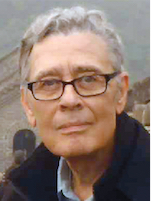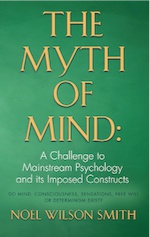| ||||||||||||
| Category: Spirituality And Psychology |
(requires Adobe Reader)
|
| About the Book | |
|
The book examines the assumptions and confusions regarding misuse of constructs (constructions) in mainstream psychology. The confusions involve a failure to distinguish constructs from concrete events. Four controversial topics of psychology, namely mind-body, consciousness, free will vs. determinism, and sensations are examined within this construct-event distinction. The book offers a philosophy of science involving a naturalistic perspective as an alternative to much if not most of psychology that starts its investigative approach with constructs. Construct-based rather than event-based approaches are pervasive and distort the science of psychology. The text provides the methodology and criteria by which to examine the assumptions and confusions regarding constructs versus events in mainstream psychology. The book examines the misuse of constructs and events and provides criteria for examining four topics. These topics are (a) mind-brain, (b) consciousness, (c) free will-determinism, and (d) sensation. These four topics are a source of major contentions in psychology. Interbehavioral field psychology is given prominence as a system that can obviate many of these confusions. It treats psychological events as interrelations of organism and surroundings that comprise the causal factors in behavior rather than assuming that the organism or its brain is self-caused and carries the entire weight of explanation. It also remedies the failure of biological orientations to recognize that while brain is a necessary condition for behavior as is environment, neither alone is a sufficient condition. The aim of the book is to provide psychologists with an alternative to mainstream approaches and to show how an approach starting investigation first with observations of events in nature rather than with traditional constructs can lead to a more scientific and effective orientation to both research and application. Most of the confusions occur in theoretical systems that can be termed organocentric, and to a lesser extent in those that are envirocentric, and least of all in those that are noncentric. It is organocentrism that constitutes mainstream psychology. This confusion of constructs and events is pervasive, especially in organocentric systems. This work is intended to explicate that confusion and offer some corrections that would go a long way toward advancing a more scientific psychology and a psychology more useful to society. The explicit assumption here is that a psychological event is one of an interaction between an organism and an object that occurs in some context. These interactions include reasoning, imagining, perceiving, learning, knowing, and so forth. Because of the context the psychological event cannot be reduced to biology, chemistry, or physics although these fully participate in that event. The various participating components provide some of the potential or enabling factors for the larger organization of events that comprise the psychological event. Change any participating event—a broken leg or a different context—and the interaction changes. Mind-body, cognition-behavior, brain-behavior and other dualisms are obviated as well an empty organism (the assumption that biology is irrelevant). Causality, it is argued, is not by internal factors (organocentrism)—mind, brain, cognition—nor by external factors (envirocentrism). Causality is not inside or outside but comprised of the entire interaction in context (noncentrism). Brief accounts of criminal justice and of community psychology suggest the advancement that starting investigations with event-based events together with a contextual/noncentric approach can make for a naturalistic and scientific psychology.
|
|
| About the Author | |
 |
Noel W. Smith is Professor Emeritus at the State University of New York. He co-authored with J. R. Kantor The Science of Psychology: An Interbehavioral Survey (1975). He authored Greek and Interbehavioral Psychology (1993, Rev. ed.), An Analysis of Ice Age Art: Its Psychology and Belief System (1992), and Current Systems in Psychology: History, Theory, Research, and Applications (2001). He was an editor and contributor to Reassessment in Psychology: The Interbehavioral Alternative. |

